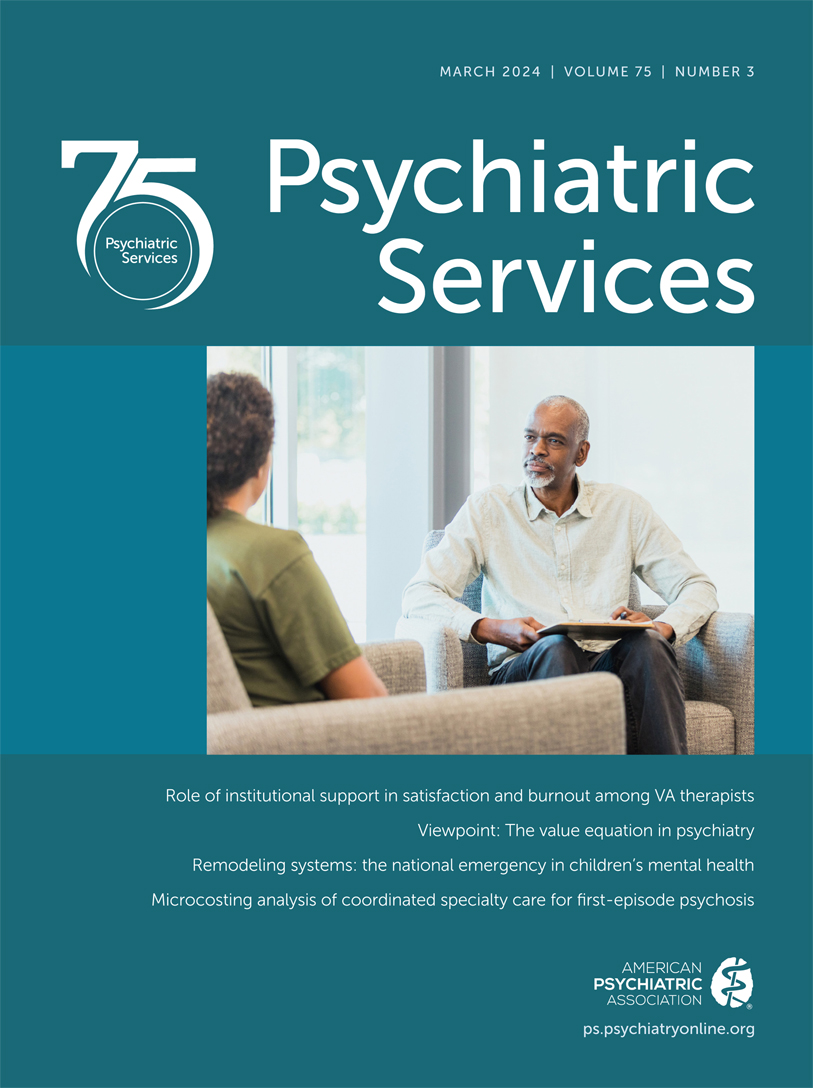Recommended Mental Health Practices for Individuals Interacting With U.S. Police, Court, Jail, Probation, and Parole Systems
Abstract
Objective:
Tens of millions of individuals with mental health problems interact with the U.S. criminal legal system (including 911, police, jail detention and sentences, courts, and probation and parole) each year. The authors sought to identify recommended mental health practices for criminal legal system–involved individuals and report the percentages of U.S. counties and of the U.S. population living in counties in which each recommended practice is present.
Methods:
Recommended practices for criminal legal–involved individuals with mental health problems were identified from meta-analyses, reviews, and best practice recommendations. Up to four respondents per county (i.e., jail, probation, community mental health, and community substance use treatment administrators) from 950 counties were asked whether each recommended practice was present for criminal legal–involved individuals. Weighted percentages of U.S. counties using recommended practices and of the U.S. population living in counties with each recommended practice are reported.
Results:
Fifty-nine recommended practices, including general mental health approaches (e.g., permanent supportive housing, Medicaid continuity) and diagnosis-specific mental health treatments (including medications and psychotherapies), were identified. Weighted data from respondents (N=791 from 519 counties) indicated that each recommended practice was present for criminal legal–involved individuals in only 21.9%–43.0% of U.S. counties.
Conclusions:
These results inform implementation efforts by indicating the presence of recommended care practices for criminal legal–involved individuals with mental health problems in counties nationwide. Because supportive housing, access to Medicaid reactivation in jails, and psychosocial interventions for physical pain have low presence but high importance for recovery, implementation efforts might first target these approaches.
Access content
To read the fulltext, please use one of the options below to sign in or purchase access.- Personal login
- Institutional Login
- Sign in via OpenAthens
- Register for access
-
Please login/register if you wish to pair your device and check access availability.
Not a subscriber?
PsychiatryOnline subscription options offer access to the DSM-5 library, books, journals, CME, and patient resources. This all-in-one virtual library provides psychiatrists and mental health professionals with key resources for diagnosis, treatment, research, and professional development.
Need more help? PsychiatryOnline Customer Service may be reached by emailing [email protected] or by calling 800-368-5777 (in the U.S.) or 703-907-7322 (outside the U.S.).



